Health awards highlight life changing work
The Queensland Mental Health Week Achievement Award winners will be announced today. Here’s what some of the finalists from across Brisbane had to say about their successes, the challenges and hopes for those living with mental illness
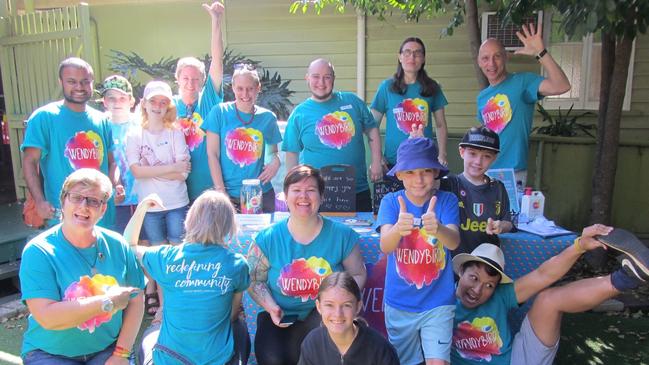
North
Don't miss out on the headlines from North. Followed categories will be added to My News.
The winners of Queensland’s premier mental health awards will be announced today at a special celebration to honour the work of organisations and individuals empowering those living with mental illness.
From a longlist of 30 finalists, 10 winners in the 2019 Queensland Mental Health Week Achievement Awards will be announced, with some prize categories providing additional financial support for programs across workplaces, not-for-profits, and individuals supporting others through their lived experiences of mental illness.
With a record number of entrants this year Event Organiser, at Open Minds, Dana Cole said being short-listed was “testament to the hard work and dedication these people and organisations have demonstrated towards improving the lives of people with mental illness”.
Following World Mental Health Day (October 10) here is what some of this years’ finalists had to say about their work, hopes and challenges of working in the mental health sector.
$1 A WEEK FOR THE FIRST 8 WEEKS. Min. cost $4
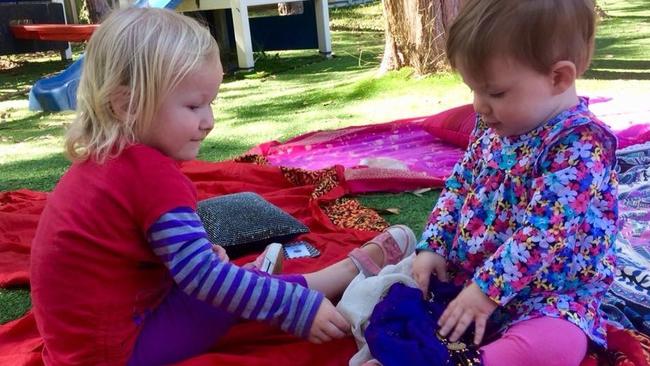
CURLEW COVE CHILDREN AND FAMILY PLACE
Providing support and assistance to isolated families on the Southern Moreton Bay Islands (SMBI) is the core work of the Macleay Island based Curlew Cove Children and Family Place.
Amy Fernando, community listener and co-ordinator, said shifting the stigma around mental illness was a large part of the work as well as providing an opportunity for more and more people to share their “lived experience” in a safe place without judgment.
Listening to more than 1000 voices sharing stories across the SMBI network, Ms Fernando said there was still much to do but “limited resources and capacity to do so”.
She said one of the greatest outcomes so far was seeing more acceptance of the “huge impact that trauma has not only on those directly impacted but also those living with them (children)”.
“Seeing families connecting with their children, friends and their community is so beautiful to see,” she said.
“Isolation is a huge issue on the Islands, particularly for young mums so to be able to provide them with an opportunity to get out and be with other families is essential to their mental health.”
She said the close-knit communities on the islands meant sometimes people could be apprehensive about seeking help but the Curlew Cove Children and Family place provided a “soft-entry”, supported by trained professionals.
“Being a finalist means so much to us, as we have been supporting many of the Southern Moreton Bay Island’s most vulnerable children and families for years, to receive acknowledgment of that is incredibly empowering and inspiring for us and our community,” Ms Fernando said.
Curlew Cove Children and Family Place supports children 0 to 8 years and their families with free transport, peer mentoring and parenting support, providing support to five offshore islands. (Early Years Category)

HELEN WEBSTER HOLIDAYS FOR HEALTH
Sandgate based mental health nurse Helen Webster, who co-founded Holidays for Health hopes to see the mainstream health sector embrace a “holistic response to helping people” experiencing mental illness.
“People need greater access to meaningful activities, healthy food options and alternatives to medication,” she said.
“Recognising that people are often victims of trauma and that restrictive treatment environments can add to that trauma would enable our leaders to create a new type of facility that encourages people to access help rather than avoid help.”
She called for more open mental health facilities.
“There are lots of people doing wonderful work, lots of it led by people who have survived and thrived despite having periods of being unwell,” Ms Webster said.
“These people are putting their hands up to challenge how things are done.”
She said language about mental illness was also conflicting and change to focus on “recovery” language, centred on hope and capabilities, was essential.
“The challenge is to support people when they are unwell and when they are well,” she said.
Journeying with others has given Ms Webster an opportunity to experience just how “incredibly humble and thankful” people are when their experiences of mental illness were acknowledged.
“Being around to see people get back things that they thought they’d lost like friendships, dignity and meaningful employment is a huge motivator.”
“The women who come on camp reflect at the beginning and the end of the retreats and the observations that they make about themselves and others are so inspiring.”
“We see people acknowledge their strengths and capacities rather than being constrained by a diagnostic label.”
Holidays for Health enables women with mental illness, impacted by poverty, to have a short holiday. (Jeff Cheverton Individual Award category)
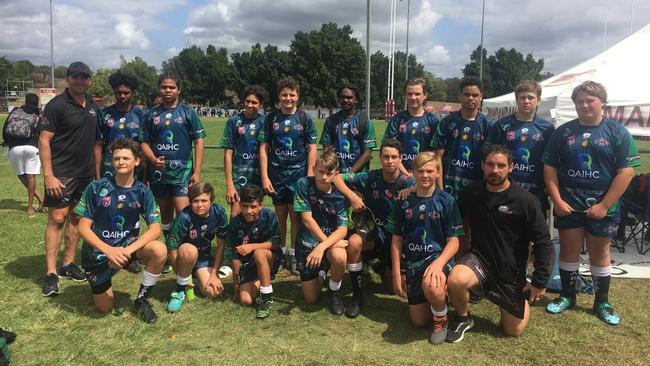
MomenTIM PROGRAM
Charles Jia knows first-hand the lives that have been changed through the MomenTIM program but still hopes for earlier intervention.
As the Men’s Health Project Officer at the Windsor based Institute for Urban Indigenous Health, which delivers the MomenTIM program, Mr Jia said mental health programs were needed at the grassroots “in schools for students and staff and in homes for Mums and Dads”.
He said with pressures changing all the time for young people and the expectations they faced “becoming more and more difficult” programs like MomenTIM were essential.
The program encourages young men to engage in “strength-based conversations about being a man” and is delivered by indigenous men in community, organisations and schools covering modules including values and beliefs, identity, culture, self-care, mental health, healthy relationships and leadership.
“Sadly, as the most marginalised community in Australia, with the highest rate of male suicides in the world, indigenous communities continue to struggle with the intergenerational trauma of past discriminative practices,” Mr Jia said.
“For indigenous men, asking for help remains a sign of weakness. Indigenous ancestors earned the respect of their peers and non-Indigenous peers by being tough, resilient and hard workers. Any sign of weakness, such as asking for help, had negative connotations and often lead to harassment, bullying, loss of employment and ultimately, poor mental health.”
“The biggest challenge is to somehow, elevate the poor mental health crisis faced by all Australians, in particular our indigenous communities, above our government’s national priorities.”
He said working with young indigenous men about becoming “Tomorrow’s indigenous Men” was something he and other facilitators (Deon Bird and Alexander Morgan) were most passionate about.
“To work with and support young indigenous people through the rigours of life, building hope, guiding confidence, self-esteem and belief, makes it all worthwhile,” he said.
“It is making a difference in the lives of these young men who begin to believe in themselves and their future.”
The MomenTIM program aims to drive improvement in the mental health and wellbeing of young indigenous men aged 12-25 years through early intervention, health outreach, and training and education (Aboriginal and Torres Strait Islander Award category)
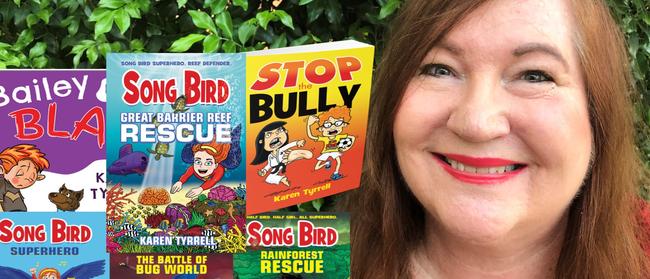
KAREN TYRRELL
Shailer Park based author Karen Tyrrell is a survivor.
Ms Tyrrell, who shares her personal story of parent-teacher bullying and mental illness, hopes her work will draw attention to the need for more programs based on self-care and mindfulness.
“Focusing on strong mind skills in early education creates a resilience-equipped society prepared for the future,” she said.
“Mental health and resilience should be a priority for society and Governments must concentrate on mental health strategies, resources and funded programs.”
She said empowering children with anti-bullying, coping and resilience skills was a “buzz”. “Every time a child or an adult confides how my mental health journey has helped them … that adds purpose to my life,” Ms Tyrrell said.
“Someone came to a recent event to disclose their own mental health issues. I shared my lived-experiences, brutal realities and the journey to develop my own coping skills, which gave them personal hope. If I can continue doing that, I’ll take my successes one person at a time.”
She said being a finalist in this year’s awards was validation for the work she does.
“I faced dark places and I never want anyone to experience that ever,” Ms Tyrrell said.
“Recognition from the mental health industry inspires me to write more empowering mental health books and continue sharing my story of hope with the community.”
Karen Tyrrell has written multiple books about anti-bullying, mental health, self-care, mood swings and how to develop coping skills. (Jude Bugeja – Peer Experience Award Category)
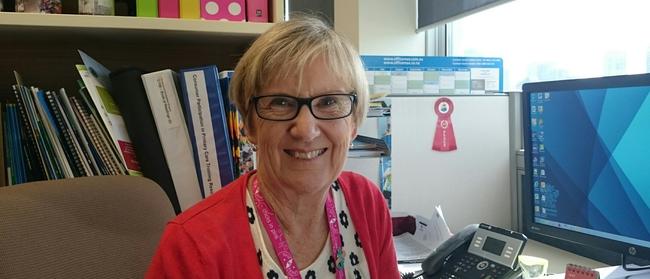
KERRY GERAGHTY
Seeing young people feel it is okay to ask for help, is the greatest change youth mental health manager Kerry Geraghty hopes to see.
Based in Camp Hill, Ms Geraghty is Clinical Governance Program Manager at Children’s Health Queensland, Child and Youth Mental Health Service.
“There has been progress but there is more work to be done … the system is still too complicated and getting help early is still the challenge,” Ms Geraghty said.
“I believe isolation and being disconnected from the general community is a huge problem.”
“We need to create communities where we all have a place to belong and this means a whole of government approach .. it takes better social planning to connect people in meaningful ways.”
She said one of the most exciting changes in the sector was the rise in the voices of those with lived experience.
“Young people, parents/carers and consumers and carers all have a role to play in making our mental health services more effective,” she said.
“People who are in recovery can share their perspective with those still struggling and offer them hope to keep working on their goals, treatment and plan a future for a better life.”
She said watching families get back on track, parents return to the workforce, siblings feel they have their brother or sister back was one of the most rewarding aspects of the work.
“I watch people grow in confidence as they offer to tell their story in a meaningful way or stand up at a conference and co present with clinicians and I feel great satisfaction that we have supported them to find their voice,” she said.
She said the awards were recognition for the many people who “have helped me” and “that this work requires a certain culture where leaders and clinical staff see the benefits of having peer workers as part of the team.”
“It is an acknowledgment that incorporating the lived experience workforce into organisations is possible and brings many benefits.”
Kerry draws on her lived experience to support parents and carers within child and Youth Mental Health Services to have a voice in their child’s recovery journey. (Jude Bugeja - Peer Experience Award category)
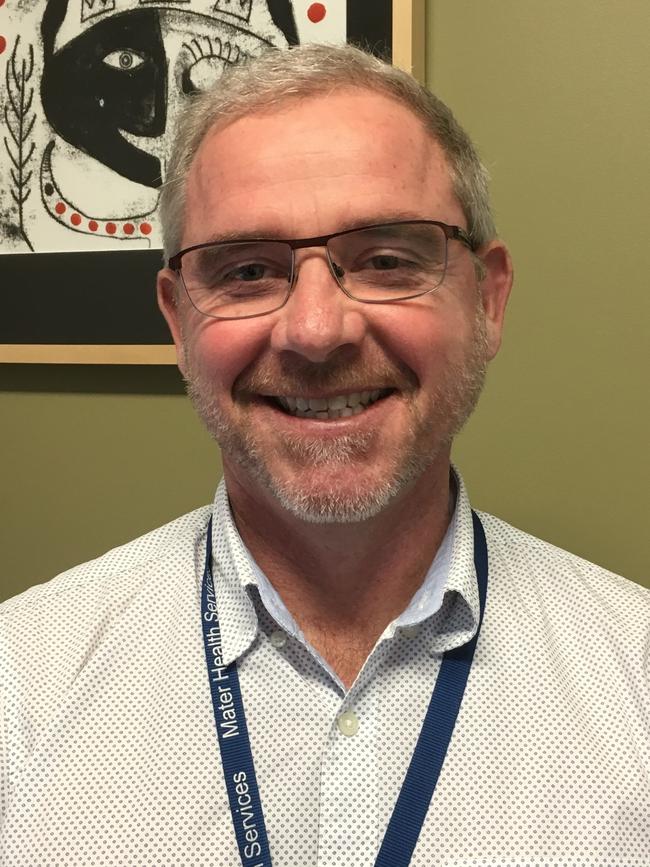
MATER REFUGEE COMPLEX CARE CLINIC PSYCHIATRIC ASSESSMENT SERVICE
Breaking down barriers for improved access to mental health care for refugees is something Greg McGahan is passionate about.
As Senior Manager at the Mater Young Adult and Mental Health Services, he sees partnering with others services as key to creating change.
Based in Wooloongabba the Mater Refugee Complex Care Clinical Psychiatric Assessment Service is at the forefront of supporting refugees with past experiences of torture and trauma.
“Working with families from a refugee background is incredibly rewarding,” Mr McGahan said.
“They are resilient having experienced trauma in their lives, yet they are positive to overcome their health issues and lead happy and healthy lives.”
He said each unique case came with an extraordinary story and the Service had seen many great outcomes.
“Many of the people we care for have experienced significant trauma and working with these patients is particularly rewarding,” he said.
“For staff at the Mater Refugee Complex Care Clinic Psychiatric Assessment Service, all of the people we see symbolise the meaningful work we do.”
He said it was “humbling for all involved” to be recognised by the awards as a finalist this year.
The clinic focuses on those who present with complex health and mental health needs and require a culturally appropriate psychiatric assessment and treatment plan, including interpreters and translators when required. (Culturally and Linguistically Diverse (CALD) award category) .
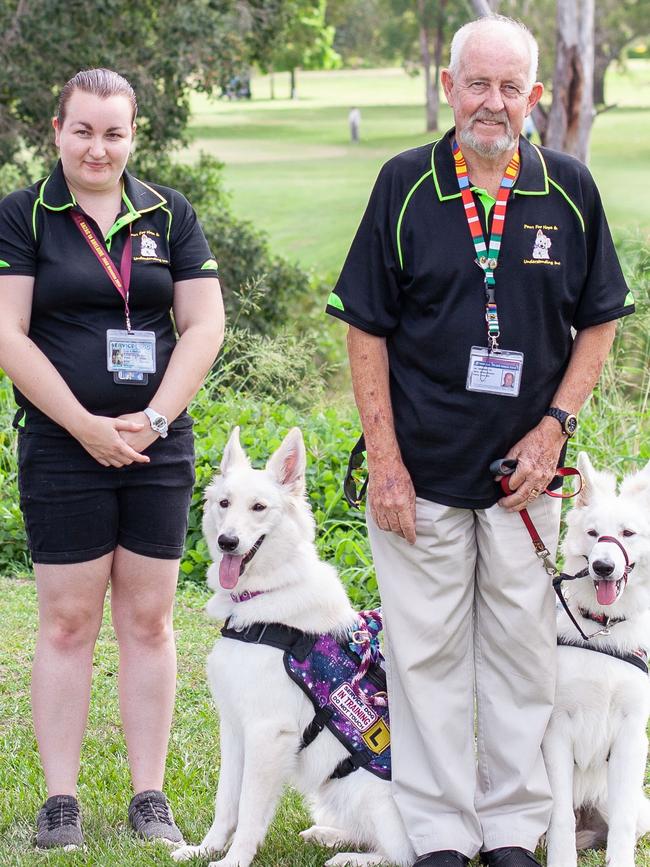
PAWS FOR HOPE & UNDERSTANDING INC
Seeing those living with PTSD return to work with a “four legged mate walking with them” is one of the greatest joys, PAWS PTSD support dog trainer Bob Richards says.
Based in Graceville, PAWS for Hope & Understanding Inc supports Veterans and First Responders living with PTSD with Task Trained Service Dogs.
“To see the change in people’s attitudes and their wellbeing as they progress with life and seeing the difference the Service Dogs have on someone’s life is one of the most exciting things,” Mr Richards said.
“And the happiness of families as they realise they have come out of the shadows.”
PAWS supports the wellbeing of ex-service personnel and their families through the provision of emotional support dogs that improve the quality of life for sufferers of PTSD. (Not-For-Profit SME (1-100 staff) category)
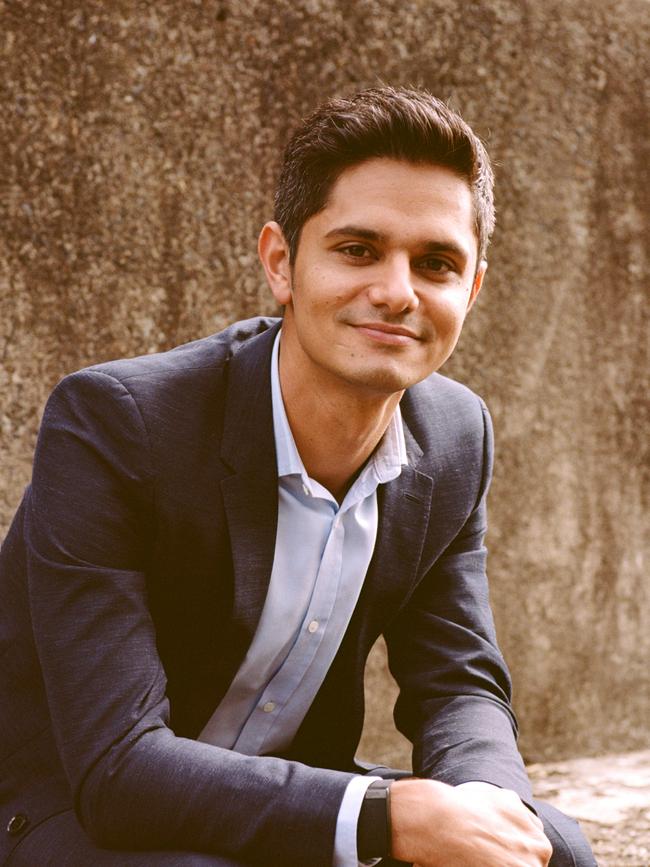
REACHOUT AUSTRALIA
As one of Australia’s leading services supporting young people, ReachOut CEO Ashley de Silva said ongoing collaboration between services was essential to create a network to support people when they needed it most.
“When we work together we have the ability to reach even more people in Australia with important messages about things like mental health and suicide,” he said.
“The work we do at ReachOut is all about helping young people to be happy and well.”
“Just one of the ways we do this is through our online peer support forums where young people can share anonymously what’s going on for them.”
“When you read threads you see each day young people providing incredible support for each other even when sometimes they are going through a tough time themselves, it’s very uplifting and inspiring.”
Mr de Silva said the recent launch of Laps for Life highlighted the ways community could come together to raise vital funds in support of young people’s mental health.
Through research, partnerships and collaboration, ReachOut is an online mental health organisation, designed with young people, for young people. (Not-For-Profit SME (1-100 Staff) category)
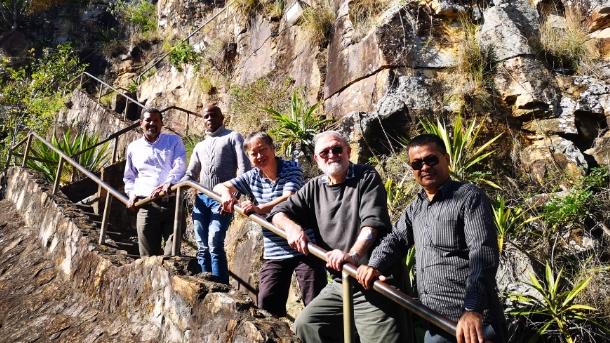
ROMERO CENRE
For those who work at the Dutton Park based Romero Centre every day brings a reminder that “we are truly just one human family”.
“To see a smile of relief in the eyes of someone whose face you thought would never shine is the most amazing experience,” says Romero spokesman Richard Langford.
The challenges of supporting asylum seekers has been one the Romero Centre has been immersed in for two decades, delivering programs to bring together community and individual asylum seekers.
Mr Langford said the greatest joys of the centre focused on seeing people from a range of backgrounds and cultures come together.
“To hear a group of people from diverse cities and countries all over the globe chanting the same Christmas wish or sing a song as one, gives you shivers through your very core,” he said.
Romero runs programs including Men’s Group which provides participants with an opportunity to practise mindfulness as well as share their concerns and experiences.
The centre also supports people who have experienced trauma, poverty, war, hardship, sexual violence, family loss, torture.
Mr Langford said being a finalist in the award was a tribute to the “resilience, courage and dignity of the people we work alongside”.
“It recognises the amazing volunteers who share their time and skills with the people who come to Romero’s welcoming doors and acknowledges those people who support Romero through generous donations.”
“Their support shows people seeking asylum they are valuable, and included, and an important part of the Brisbane community.”
Romero supports people seeking safety and asylum in South East Queensland. Romero supports women, men and children to access essential services including housing and employment. Based in Dutton Park (Culturally and Linguistically diverse category)
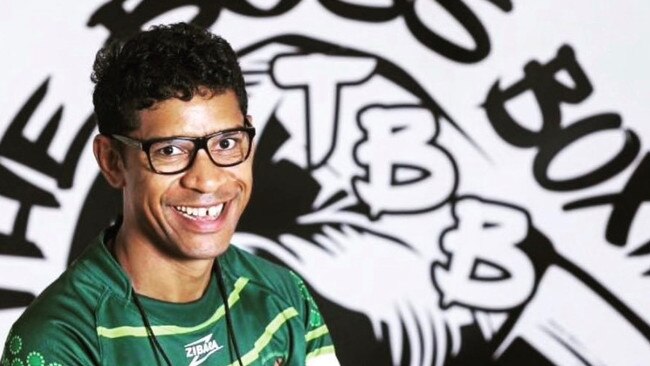
SAMMY LEONE
Seeing the negative perceptions around the sport of boxing change is one of the biggest challenges facing the delivery of The Boss Boxing program, according to Sammy Leone.
As Director of the Zilmere based Pass on the Fire Aboriginal Strait Island Corporation Mr Leone said the shift in perception was changing as the Boss Boxing program demonstrated more and more “positive outcomes for at risk groups”.
“We see the positive shift in people’s cultural safety, mental health/well being and reaching their physical goals which makes it all worth while,” Mr Leone said.
He said seeing young people within the youth justice system make positive shifts in their life “due to their passion for boxing and involvement in the program was incredibly rewarding”.
“To be nominated by a community member makes being a finalist even more rewarding,” he said.
“It’s an honour to be recognised for the hard work that I have been doing within the community for the past 12 years.”
Sammy is a Director of Pass on the Fire Aboriginal and Torres Strait Islander Corporation, which uses sports and healthy lifestyle programs to address mental health and social issues including The Boss Boxing, a culturally safe healthy lifestyle program for groups such as Aboriginal and Torres Strait Islander, CALD, LGBTIQA+, people with disabilities, and the broader population. (Jeff Cheverton Individual Award category)
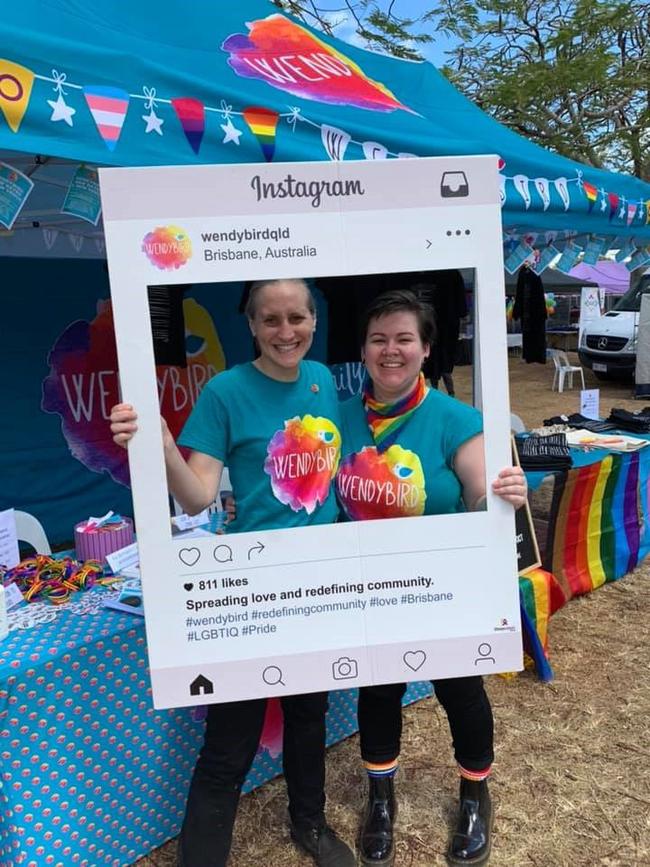
WENDYBIRD
Wendybird co-founder Sally Morris has a few hopes for the future.
“That every single mental health service is a safe and supportive space for LGBTIQ people to receive the care that meets their specific and unique needs, that all mental health workers are educated and trained about LGBTIQ people and communities and have the knowledge and skills on how to best support us, that religious based organisations delivering mental health services no longer have legal endorsement to discriminate against LGBTIQ people and that LGBTIQ people are counted in mental health research, data and statistics,” she said.
“We hope for a day where LGBTIQ peoples’ mental health is no longer damaged by stigma that is so very common in our society.”
Ms Morris said she also hoped Wendybird, which operates in New Farm and West End, would one day be fully funded.
“LGBTIQ people have some of the poorest mental health outcomes, yet there is so little funding for LGBTIQ services,” she said.
“We are a volunteer, unfunded group simply because we don’t have any options to be funded. We can only imagine what we could do to improve the mental health of LGBTIQ people if we were actually funded.”
She said Wendybird provided a place for many LGBTIQ people to find themselves.
“Most people come to a Wendybird event on their own, not knowing any other LGBTIQ people, feeling terrified that they will be rejected for being themselves,” she said.
“But they come anyway, the desire for connection stronger than any fear. You see them slowly relax and letting down their guard as they see they are surrounded by other people also being their authentic selves, reaching out bravely to start connecting with others.
“It’s not long until you see bonds forming, people laughing, having fun, and friendships growing. Most heartwarming is then you see these now comfortable people reaching out to the next scared person bringing them into the space. It is really beautiful to see.”
She said being a finalist in the awards recognised the value of supportive, inclusive community spaces.
“We know that authentically belonging is vital for our wellbeing, but building inclusive communities often isn’t recognised as making a meaningful contribution to mental health,” she said
“We hope that by being a finalist that we might start to change the conversation about the role of community and belonging in mental health.”
Wendybird is a not-for-profit, volunteer run community group led by LGBTIQ people. It creates safe and supportive spaces for people to connect and find a sense of belonging. (LGBTI Award category)
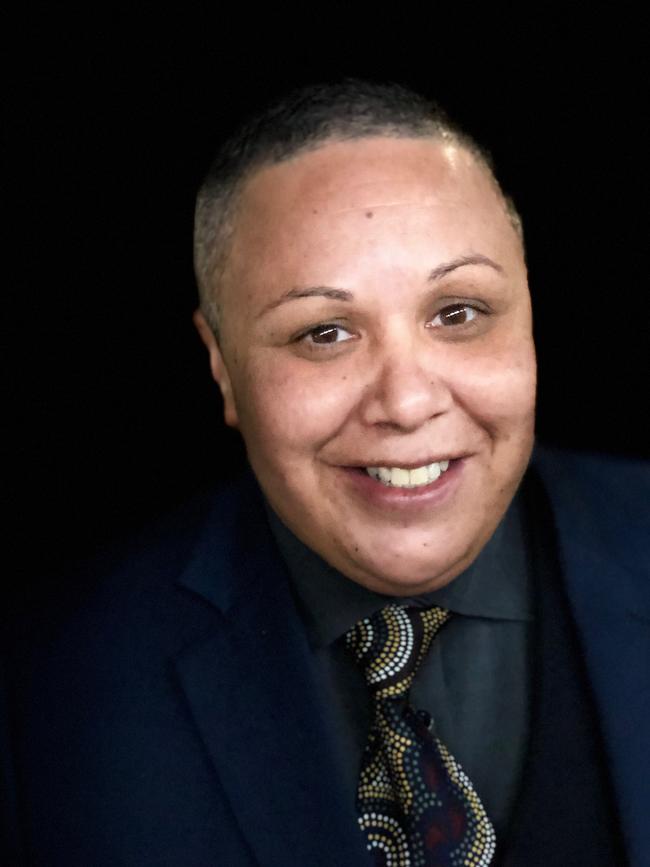
YARNS HEAL
The Brisbane North based Yarns Heal program is part of a mission to bring conversations about suicide prevention not only to indigenous LGBTIQ people but to the wider Aboriginal and Torres Strait Island Community.
For program co-founders Bec Johnson and Tanya Quakawoot seeing the needs of LGBTI+ peoples at the “forefront in the mental health sector” is one of their greatest hopes – the outreach program Yarns Heal just one thread in a campaign of change needed.
“A challenge in the Mental Health sector is that LGBTI+ organisations are under resourced to provide a broader response to Mental Health and LGBTI+ people and communities should be at the table in all co-designs of strategy’s and frameworks pertaining to Mental Health and Suicide Prevention.” they said.
“More funding should be directed to LGBTI+ Services that have the connection point and that provide safe spaces for LGBTI+ people to access.”
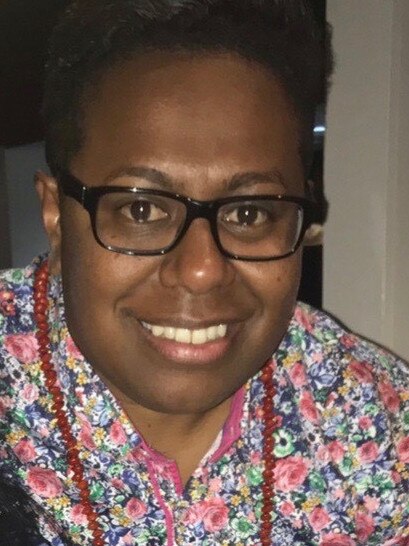
Yarns Heal provides referral pathways and opportunities for people to share stories of survival and resilience.
“We learn to listen, connect and support each other. Culture is strength. Courage is wisdom. Safe communities is a healthy recovery pathway for mob to access the support they need to be seen and heard,” they said.
“The ‘Yarns Heal’ suicide prevention campaign and the Cultural Healing Retreats are a major achievements. We strive to meet the needs of our community. We continue to invest in to improving the mental health and wellbeing of indigenous LGBTIQ+ Sister Girls and Brother Boys people in Australia.”
“Being a finalist allows us to recognise the countless volunteer hours that have been contributed by members of Brisbane North communities to stop the alarming incidents of Suicide and Self Harm.”
The Yarns Heal campaign brings together indigenous LGBTIQ+SB people and the wider Aboriginal and Torres Strait Islander community in the Brisbane North area to talk about Suicide Prevention and strengthen Peer-to-Peer support systems. Yarns Heal was co designed with community, supporting through care pathways with Aboriginal psychologists, with the option of participating in Cultural Healing retreats. (LGBTI category)
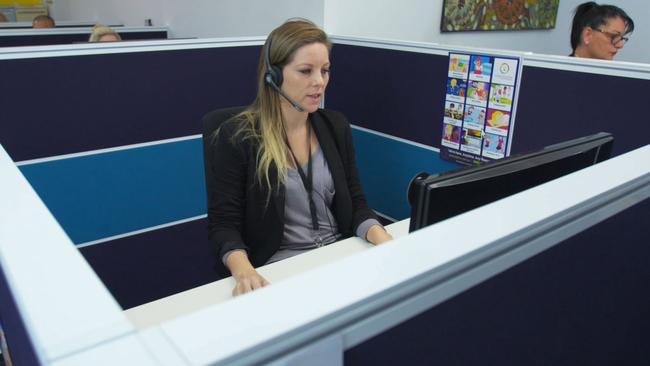
YOURTOWN
Struggling to keep up with the needs of at risk young people remains one of the greatest challenges for one of Australia’s longest running support services, Yourtown manager Tony FitzGerald said.
“Early intervention and prevention is so critical when it comes to mental health and if we can address issues before they become significant this will in turn help create a mentally healthy generation where there is no stigma or shame about help seeking,” Mr FitzGerald said.
“For us at Kids Helpline it is ensuring that all young people get the help they need, when they need it. As a service we are struggling to keep up with demand. Young people take that brave step to contact us because they need support and it concerns us that at times they feel like they can’t get through. We urge them to keep trying.”
He said feedback from young people consistently told the service that “talking through their challenges with a counsellor really helps”.
“On a daily basis we are contacted by children and young people who are in crisis and need our help,” Mr Fitzgerald said.
With more than 39,000 contacts over the last year in relation to mental health, emotional wellbeing or suicide related concerns, Mr Fitzgerald said Yourtown and Kids Helpline had been the “catalyst for helping turn” many lives around.
Based in Brisbane, Kids Helpline is Australia’s only free, confidential 24/7 phone and online counselling service for people aged 5-25, who are at risk of or experiencing mental illness. (Not-For-Profit Large 101+ Staff category)


